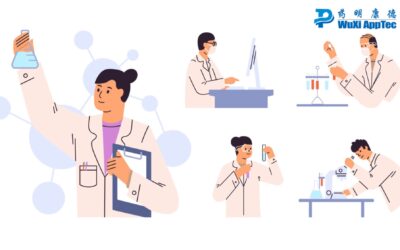The endocrine system comprises myriad glands, hormones and receptors throughout the body that regulate biological processes from birth to death. Chief among those processes is the differentiation, growth and function of the human reproductive system. Human...
Regulatory
5 Critical Nonclinical Toxicology Studies Required for IND Submission
Toxicology studies are required for Investigational New Drug (IND) and New Drug Application (NDA) submissions in order to fully define the safety profile of a drug – and maintain the highest level of patient safety. In this short guide, we cover the core battery...
6 Essential Qualities in a Drug Safety Assessment Testing Partner
Drug safety assessment is a highly complex, involved and molecule-specific process, which is why most drug developers benefit from working with a testing partner. But not all CROs are created equal. Here are six characteristics to consider. Safety assessment studies –...
What Is IND-Enabling Testing & What Does It Include?
IND-enabling testing is a cornerstone of the drug development process, helping researchers predict safety concerns and estimate safe and efficacious starting doses for clinical trials. Planning ahead, understanding the tests you need to conduct, and diligent tracking...
Preparing Drug Developers for Developmental and Reproductive (DART) Studies
In 1993, the International Council for Harmonization of Technical Requirements for Pharmaceuticals for Human Use (ICH) published guidance entitled “S5 Detection of Toxicity to Reproduction for Medicinal Products.” The U.S. FDA interpreted the ICH guidance and...
WuXi AppTec Expands Toxicology Footprint, Capabilities with New Chengdu Facility
A new 108,000-square-foot testing facility in Chengdu, China, will allow WuXi AppTec to help meet high global demand for toxicology testing in preclinical studies. The facility significantly expands WuXi AppTec’s testing capacity at a time when many customers’...
In The News: WuXi AppTec Experts in the Drug Development Community (Aug-Dec 2021)
WuXi AppTec Laboratory Testing Division experts continually weigh in on emerging trends and stay updated on salient drug development topics. Here is a rundown of the industry publications featuring WuXi AppTec experts in the second half of 2021. 1. Genetic Engineering...
Q&A: How Preclinical Toxicology Contributes to Successful IND Applications
Preclinical toxicology testing on new molecules is essential. Researchers use toxicity tests to identify specific adverse effects related to cancer, cardiotoxicity and skin/eye irritation and sensitization. These in vitro and in vivo studies combine with accidental...
The Vital Role Of Toxicity Studies In Evaluating New Drugs
The evaluation of toxicity in a new drug is a very thorough process, so that by the end of the testing, scientists will have compiled all the necessary data to understand the full safety profile of the potential new drug. During that nonclinical evaluation, there are...
Navigating 505(b)(1), 505(b)(2) and 505(j) Drug Approval Pathways
Introducing new drug candidates to preclinical testing is a complex and time-consuming endeavor. It can cost developers more than $1 billion and take a decade to bring a new drug to market. Success rates vary depending on therapeutic area, but a recent study from...
Understanding Differences in Regulatory Requirements Vital to Efficient Design of Preclinical Programs
There are many factors involved in designing a preclinical drug safety assessment program, but among the priorities is having a good understanding of the different requirements from the various regulatory agencies in which the Investigative New Drug (IND) will be...
5 Questions When Planning a Nonclinical Toxicology Program for Biotherapeutics
Encountering challenges while developing a new drug is expected, but drug developers who understand the pitfalls are often better prepared to navigate them and emerge successfully. Nonclinical safety assessment is a highly complex and molecule-specific process, but...











